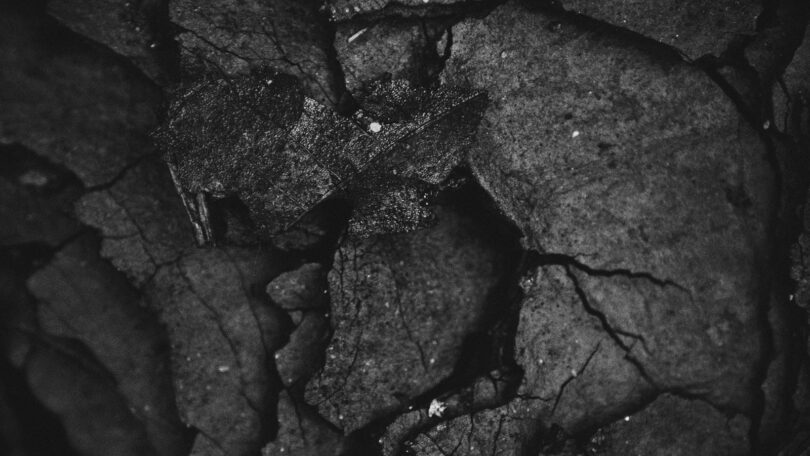Exploring historical cooking recipes offers a unique glimpse into the cultural heritage of different societies throughout history. By analyzing these recipes, we can better understand the ingredients, techniques, and food traditions that shaped various cultures. Evaluating the cultural significance of these recipes provides valuable insights into how food has played a role in shaping societies and connecting generations. In this article, we will delve into the importance of historical cooking recipes and why they are worth studying.
1. Tracing the Evolution of Cooking Recipes Throughout History
The evolution of cooking recipes throughout history provides valuable insights into the cultural values and traditions of diverse societies. Delving into ancient texts and artifacts, researchers can uncover the intricate details of ingredients, cooking techniques, and dietary preferences that shaped culinary practices in different regions. Recipes vary greatly across time and place, reflecting the unique culinary heritage of each community.
By identifying the cultural significance of ancient cuisine practices, historians can better understand the societal norms, religious beliefs, and social structures that influenced the preparation and consumption of food in the past. Ancient recipes offer a window into the daily lives and rituals of our ancestors, shedding light on their tastes, preferences, and customs. Examining the subtle nuances and variations in historical cooking recipes across cultures highlights the diversity and richness of culinary traditions worldwide. From the spicy curries of India to the delicate pastries of France, each recipe tells a story of innovation, adaptation, and creativity.
As we evaluate the impact of historical cooking recipes on modern cuisine, it becomes clear that these ancient practices continue to shape our culinary landscape today. Traditional dishes and cooking methods have been passed down through generations, influencing the flavors and techniques used in contemporary kitchens. To preserve and celebrate these valuable traditions, it is essential to recognize the importance of historical cooking recipes and promote their continued appreciation and adaptation in the culinary world.
2. Identifying the Cultural Significance of Ancient Cuisine Practices
Ancient cuisine practices hold a significant cultural importance that reflects the traditions and values of different societies throughout history. By examining historical cooking recipes, we can uncover unique insights into the lifestyles, beliefs, and social structures of past civilizations. These recipes serve as a window into the culinary heritage of various cultures, showcasing the diversity and richness of human culinary traditions.
Key Points of Interest in :
- Exploring the use of ingredients specific to certain geographical regions and their symbolic meanings within the culture.
- Understanding the cooking methods and techniques employed by ancient civilizations and how they have influenced modern culinary practices.
- Recognizing the rituals and ceremonies associated with food preparation and consumption in different cultures, shedding light on the societal dynamics and beliefs of the time.
3. Analyzing Variations in Historical Cooking Recipes Across Cultures
When delving into the realm of historical cooking recipes, one cannot overlook the vast array of variations that exist across different cultures. These variations, shaped by unique traditions, ingredients, and cooking techniques, offer invaluable insights into the rich diversity of culinary practices worldwide. By analyzing these variations, we can better understand how historical cooking recipes have evolved over time, reflecting the cultural influences that have shaped them.
One of the most fascinating aspects of exploring variations in historical cooking recipes is witnessing the fusion of different culinary traditions. From the spices used in Indian curries to the techniques employed in French pastries, each culture brings a unique flavor profile and cooking style to the table. By comparing and contrasting these variations, we gain a deeper appreciation for the interconnectedness of global cuisine and the ways in which different cultures have influenced each other over the centuries.
- Exploring the diverse range of ingredients used in historical recipes
- Examining the cooking methods and techniques specific to each culture
- Tracing the cultural origins and influences behind each variation
4. Evaluating the Impact of Historical Cooking Recipes on Modern Cuisine
Historical cooking recipes play a vital role in shaping modern cuisine, as they provide a link to our culinary roots and cultural heritage. By examining these recipes, chefs can gain insight into the traditions, ingredients, and cooking techniques that have been passed down through generations. These recipes offer a unique perspective on how food has evolved over time, showcasing the diverse influences that have shaped our palates today.
Furthermore, the impact of historical cooking recipes extends beyond the kitchen, as they serve as a reflection of a society’s values, beliefs, and traditions. Studying these recipes can help us better understand the cultural significance of different cuisines and how they have been influenced by factors such as migration, trade, and colonization. By celebrating and preserving these culinary traditions, we can ensure that they continue to enrich our lives and connect us to our past.
5. Recommendations for Preserving and Celebrating Historical Cooking Traditions
To preserve and celebrate historical cooking traditions, it is essential to document and record traditional recipes that have been passed down through generations. By creating digital archives or physical cookbooks, these recipes can be safeguarded for future generations to appreciate and learn from. Additionally, organizing community events or cooking workshops focused on historical cooking can help bring awareness to the cultural significance of these traditions.
It is also crucial to involve local communities and cultural institutions in the preservation of historical cooking traditions. Collaborating with historians, chefs, and food experts can provide valuable insights into the evolution of cooking practices and recipes over time. Furthermore, encouraging young chefs and culinary enthusiasts to explore and experiment with historical recipes can help keep these traditions alive and relevant in a modern context.
By actively engaging in the preservation and celebration of historical cooking traditions, we can honor the cultural heritage and diversity of our ancestors while also gaining a deeper appreciation for the rich tapestry of cuisines that have shaped our culinary landscape today.
Future Outlook
In conclusion, historical cooking recipes provide valuable insights into the cultural significance of different societies throughout history. By studying these recipes, we can gain a deeper understanding of the traditions, customs, and values that shaped culinary practices in the past. However, it is essential to critically evaluate these recipes and consider the context in which they were created, taking into account the biases and limitations that may have influenced their content. By approaching historical cooking recipes with a critical mindset, we can appreciate their cultural value while also recognizing the complexities of interpreting and analyzing them.
References/Sources:
- “The Art of Cooking: The First Modern Cookery Book” by Maestro Martino of Como
- “Cookbook of the Consolation of Philosophy” by Juana Inés de la Cruz
- “Revolutionary Recipes: Colonial & Classic Fare” by Virginia T. Elverson
- “A Taste of the Past: Early American Cooking” by Carol Morales
- “Culinary Culture in Colonial India: A Cosmopolitan Society” by Utsa Ray








Leave a Comment